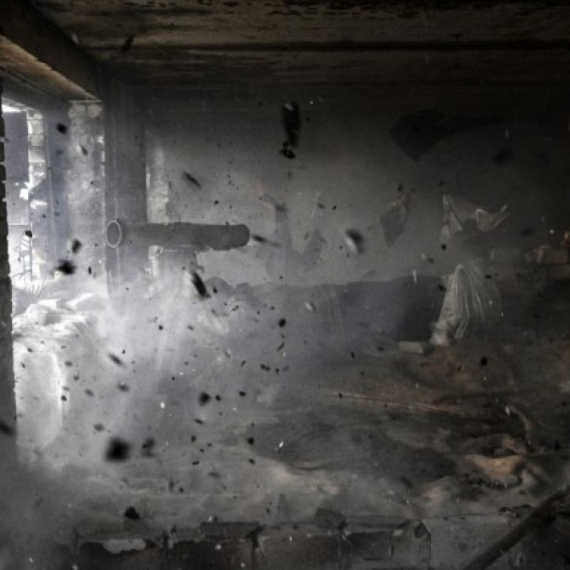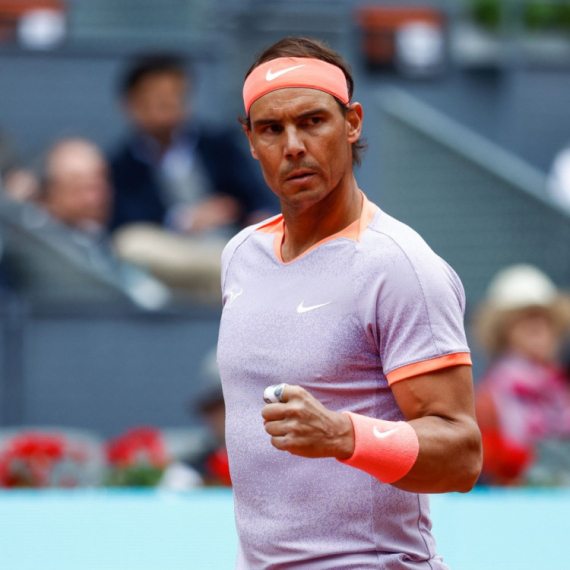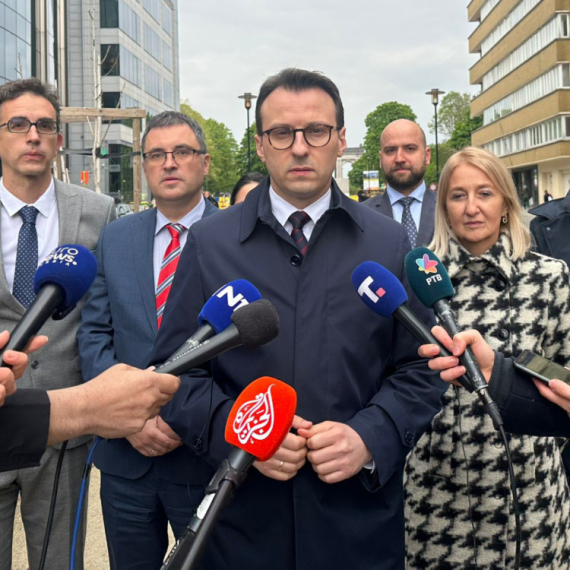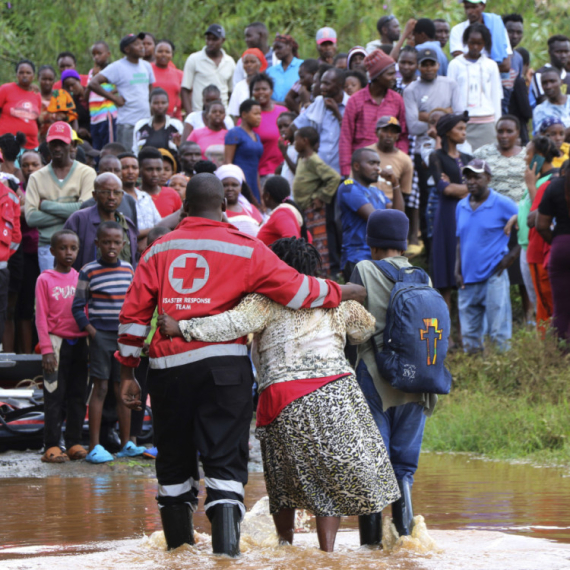Serbia needs "reindustrialization, shift to real economy"
A plan of Serbian economy's reindustrialization will be finished by April, says Vice President of the National Council for Economic Recovery Branislav Grujić.
Wednesday, 13.03.2013.
18:24

MT. KOPAONIK A plan of Serbian economy's reindustrialization will be finished by April, says Vice President of the National Council for Economic Recovery Branislav Grujic. "The plan is to work with the Ministry of Economy, experts and all interested and relevant parties in the Serbian economy, to define a basic strategic plan to start the process of reindustrialization," said Grujic, who is the president of PSP-Farman. Serbia needs "reindustrialization, shift to real economy" A meeting of the National Council for Economic Recovery was held on Wednesday ahead of the Kopaonik Business Forum to discuss reindustrialization. "We are working actively on the issue. It is visible that this meeting brought about a certain change in the way of thinking of the participants, one that turns us towards a new development model called reindustrialization, which cannot be done overnight. It is a long-term task we need to work on in the next 15-20 years," Grujic noted. It involves a change in the way business in Serbia has been done over the past 20 years, he stated. "The prime minister has implied it, and our leading economists suggest a change in that direction, which will take a long time. It is a painful process, but we have no other way to overcome the crisis," Grujic remarked. The most important thing is that the new government understands that and is turning a new leaf towards a new direction of development, he stressed. The Wednesday message from the Kopaonik Business Forum, which will last until March 15, is important not only for the Serbian public, but for foreign investors and international financial institutions as well, he concluded. "Shift to real economy" A shift to the real economy and industry is a prerequisite for economic recovery of both transition countries and EU member states, estimated panelists at the 2013 Kopaonik Business Forum on Wednesday. Professor at the Belgrade-based Faculty of Economics Dragan Djuricin underscores that a radical change is needed in economic policies, as the model dedicated to inflation control has not proved effective. Industrial policies should lead, and macroeconomic ones follow them, the professor said. According to Djuricin, such a model of economic policy is needed that would constitute a shift to the real economy, taking into account the affluent financial sector that should be utilized for reindustrialization process. The reindustrialization process is the right way for the Serbian economy to regain competitiveness, Djuricin said, adding that a room for new investments must be found. The sectors that constitute comparative advantages should be utilized - energy, infrastructure, agriculture, logistics. Serbia should turn to the countries that are experiencing an economic upswing, he said. President of the Croatian Association of Economists Ljubo Jurcic says that the European Union must start thinking in a different way and turn to industry, as that is the way to stabilize the situation. Fiscal and monetary stabilization are a good framework, but if it is not filled with industry, a crisis follows, he noted. According to Jurcic, the errors made by transition countries arise from the fact that they only adopt norms and EU directives, forgetting that the states that have been EU members for quite long are also facing big economic problems. He added that Serbia and Croatia are facing a similar economic situation, underlining that "Croatia's tourism revenue would come in handy for Serbia, and Serbia's industrial one for Croatia." Professor at the Faculty of Economics in Belgrade Dragan Malinic identified profitability as the key issue of Serbian economy. Without a profitable economy, there is no economic growth, competitiveness and new technologies, Malinic said. Tanjug
Serbia needs "reindustrialization, shift to real economy"
A meeting of the National Council for Economic Recovery was held on Wednesday ahead of the Kopaonik Business Forum to discuss reindustrialization."We are working actively on the issue. It is visible that this meeting brought about a certain change in the way of thinking of the participants, one that turns us towards a new development model called reindustrialization, which cannot be done overnight. It is a long-term task we need to work on in the next 15-20 years," Grujić noted.
It involves a change in the way business in Serbia has been done over the past 20 years, he stated.
"The prime minister has implied it, and our leading economists suggest a change in that direction, which will take a long time. It is a painful process, but we have no other way to overcome the crisis," Grujić remarked.
The most important thing is that the new government understands that and is turning a new leaf towards a new direction of development, he stressed.
The Wednesday message from the Kopaonik Business Forum, which will last until March 15, is important not only for the Serbian public, but for foreign investors and international financial institutions as well, he concluded.
"Shift to real economy"
A shift to the real economy and industry is a prerequisite for economic recovery of both transition countries and EU member states, estimated panelists at the 2013 Kopaonik Business Forum on Wednesday.Professor at the Belgrade-based Faculty of Economics Dragan Đuričin underscores that a radical change is needed in economic policies, as the model dedicated to inflation control has not proved effective.
Industrial policies should lead, and macroeconomic ones follow them, the professor said.
According to Đuričin, such a model of economic policy is needed that would constitute a shift to the real economy, taking into account the affluent financial sector that should be utilized for reindustrialization process.
The reindustrialization process is the right way for the Serbian economy to regain competitiveness, Đuričin said, adding that a room for new investments must be found.
The sectors that constitute comparative advantages should be utilized - energy, infrastructure, agriculture, logistics. Serbia should turn to the countries that are experiencing an economic upswing, he said.
President of the Croatian Association of Economists Ljubo Jurčić says that the European Union must start thinking in a different way and turn to industry, as that is the way to stabilize the situation.
Fiscal and monetary stabilization are a good framework, but if it is not filled with industry, a crisis follows, he noted.
According to Jurčić, the errors made by transition countries arise from the fact that they only adopt norms and EU directives, forgetting that the states that have been EU members for quite long are also facing big economic problems.
He added that Serbia and Croatia are facing a similar economic situation, underlining that "Croatia's tourism revenue would come in handy for Serbia, and Serbia's industrial one for Croatia."
Professor at the Faculty of Economics in Belgrade Dragan Malinić identified profitability as the key issue of Serbian economy.
Without a profitable economy, there is no economic growth, competitiveness and new technologies, Malinić said.






























Komentari 1
Pogledaj komentare